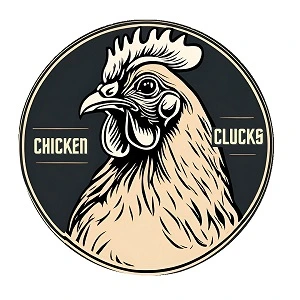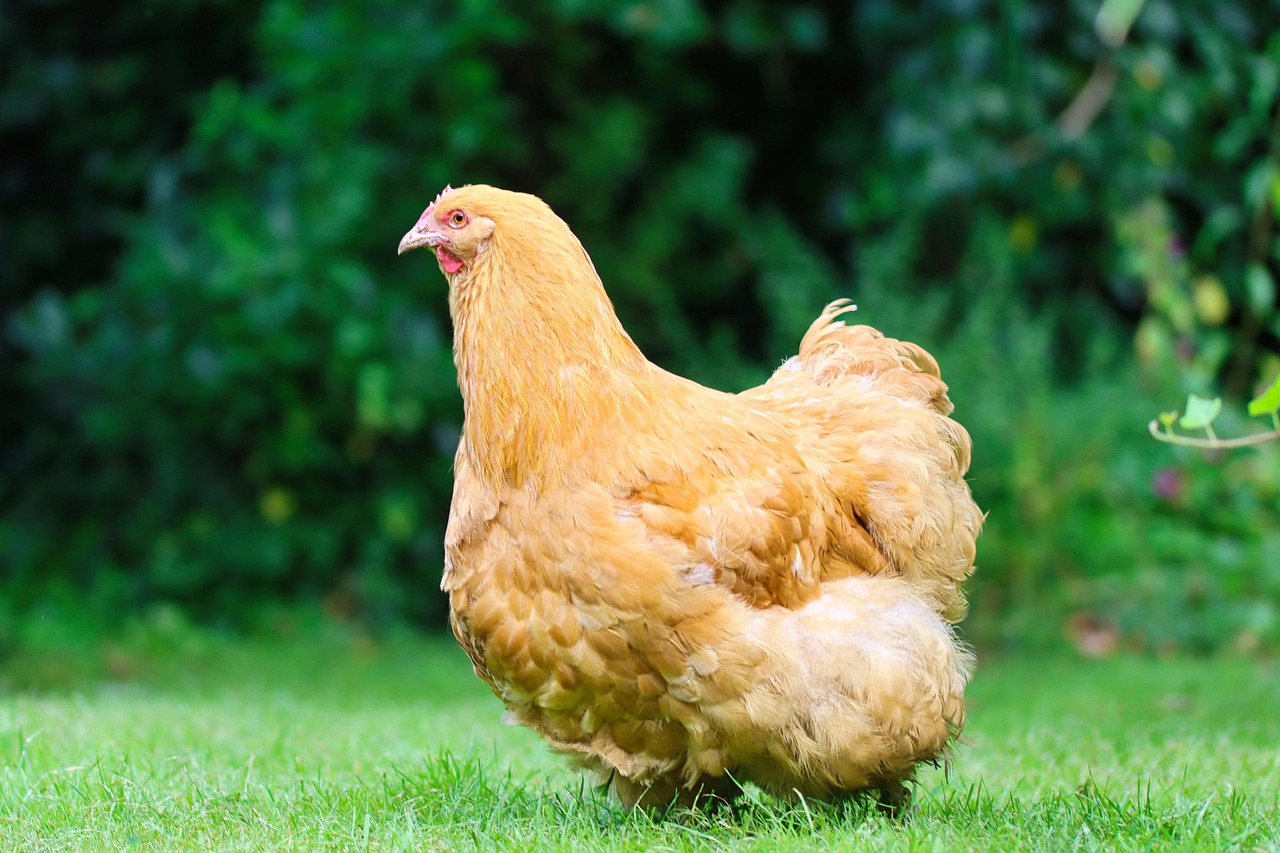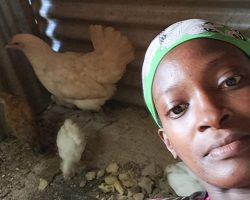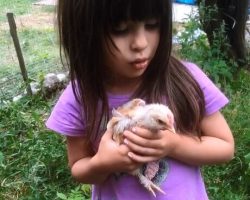This is the chicken story of Annette J. Beveridge, from England. Growing up in a family where having a menagerie of animals was the norm, she still rescues animals in adult life. She has many passions in life including writing, reading and spending time in nature. X profile: @annettejbe.
Growing Up
When I grew up, keeping chickens seemed an ordinary thing to do. Only when I spoke to my school friends, I realized it wasn’t the norm at all.
A menagerie of animals probably wasn’t usual either with three tortoises – Cuthbert, Fred and Henrietta, about twenty racing pigeons, and our two cats – Tabitha and Titch. We also looked after a budgie called Bobby, and an injured hedgehog which we affectionately named Pickles.
My family had been talking about keeping chickens, or rather my father had mentioned it one evening, and my brother and I were immediately onside. We knew we could cope with looking after more birds but I didn’t expect it to happen quite so quickly. Only days later, my father had the day off from work and by the time I arrived home from school, he had created a secure coop by partitioning the shed and the loft and suddenly, we had three resident chickens in place.
Our hens arrived and were healthy. I think from memory, we inherited the buff Orpington hens because someone my father knew had died leaving the chickens without anyone to care for them.
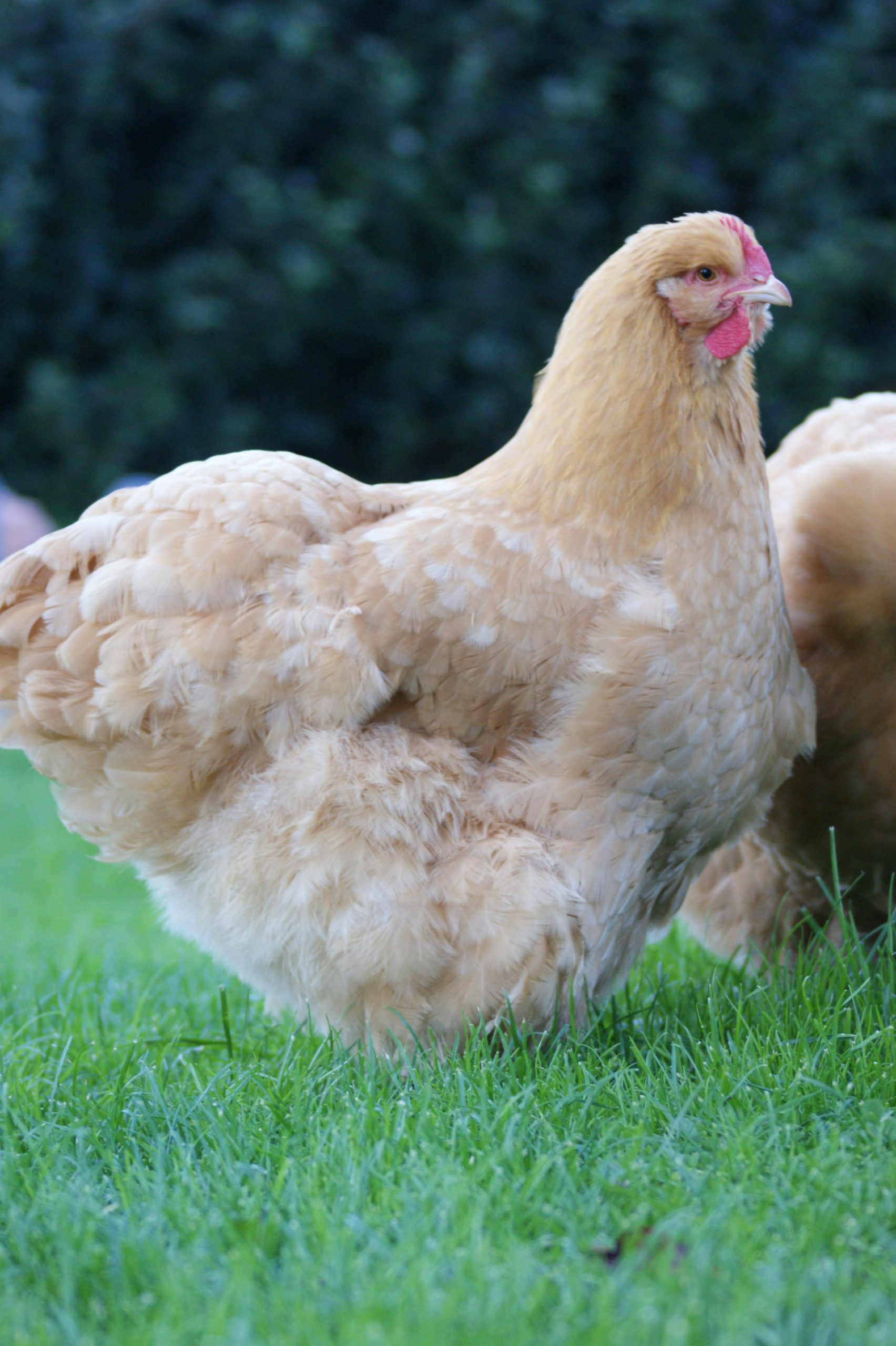
The layout of the garden
Back then, the days felt endless. When you’re young, time feels different. School holidays stretched on forever, and on those sun-drenched days of summer, my brother and I spent much of our time outside. The garden was our playground, divided into clear sections. One play area close to the house, and a no-go area where vegetables grew in neat rows. Also, we had a little part of the garden where we could grow sunflowers or salad leaves. In reality, it just meant we got the soil that wasn’t as good. Later, we could keep birds in the bottom part of the garden.
I remember us being busy in the garden most days. From sawing up wood, weeding, and of course, cleaning out the loft and coop. My father spent a lot of time working in the garden, digging up potatoes or picking beans so we could have fresh vegetables to eat. It all seemed a very natural and healthy way to be.
Settling In
At first, we kept the hens in the coop and run for a few days to help them settle in and get used to us. Once we felt they were ready, we let them explore the garden, even when we were there too. It quickly became a routine: after school, we’d release the hens and watch them wander, pecking at something hidden on the ground. They usually stayed together but would often approach us, curious to see what we were up to.
The hens used to see off unwanted feline attention by ganging up on them. I noticed how their feathers would fluff up giving them a more aggressive appearance and they seemed fearless. They were certainly curious. I worried that our cats might attack them. But they, along with the neighborhood cats, just watched them with suspicion from a distance.
We named our chickens Buffy, Florrie, and Matilida. Their new home had become a chicken sanctuary. They had the best food, the best lives, and the best cuddles. It was all pretty harmonious. Hens have distinct personalities, the more you interact with them, the tamer they are. Ours became very friendly, and it was impossible to avoid having a favourite.
My father had been brought up on a farm in Scotland so his attitude towards animals was not as emotional as ours. Working the farm had been a tough way of life, and it took him a while to soften towards the animals and to consider them as pets. I think he despaired at times that we named everything and fussed over them. Our animals ruled, it was as simple as that. The hens were just an extended part of our family.
About the breed
Orpington is a hybrid breed. William Cook crossed Plymouth Rocks, Minorcas and Langshans to create a bird with an abundance of fluffy feathers. This was in the 1880s and he bred black Orpingtons first, but buff is a common colour. These are quite big hens. An average hen will weigh 7 or 8 lbs and if you have a Cockerel, that will be heavier still – about 10lbs. Living in a fairly built-up area, we didn’t want a Cockerel.
The hens have a deep chest and quite round bodies. They have quite short legs, and some are feathered. Because they have plenty of feathers, this acts as insulation for the colder nights, and overall, they are harder birds but they do need to be looked after. Watching them scraping at the soil, while making a contented little sound is imprinted on my mind.
Orpingtons are one of the friendliest breeds of chickens. I remember having one in my lap and hugging it. However, it is worth remembering that each bird will have its own personality, some hens want to be fussed and cuddled, others won’t. You always let the birds choose how close they want to be. It is about building trust. Some birds will be more active than others and will enjoy scratching around in the garden if they are let loose from the coop and run. Others may be just as happy in the run.
During my childhood, we didn’t have other breeds of chickens, but my understanding is that Orpingtons are way down the pecking order. They are just not assertive birds. They do settle in well though.
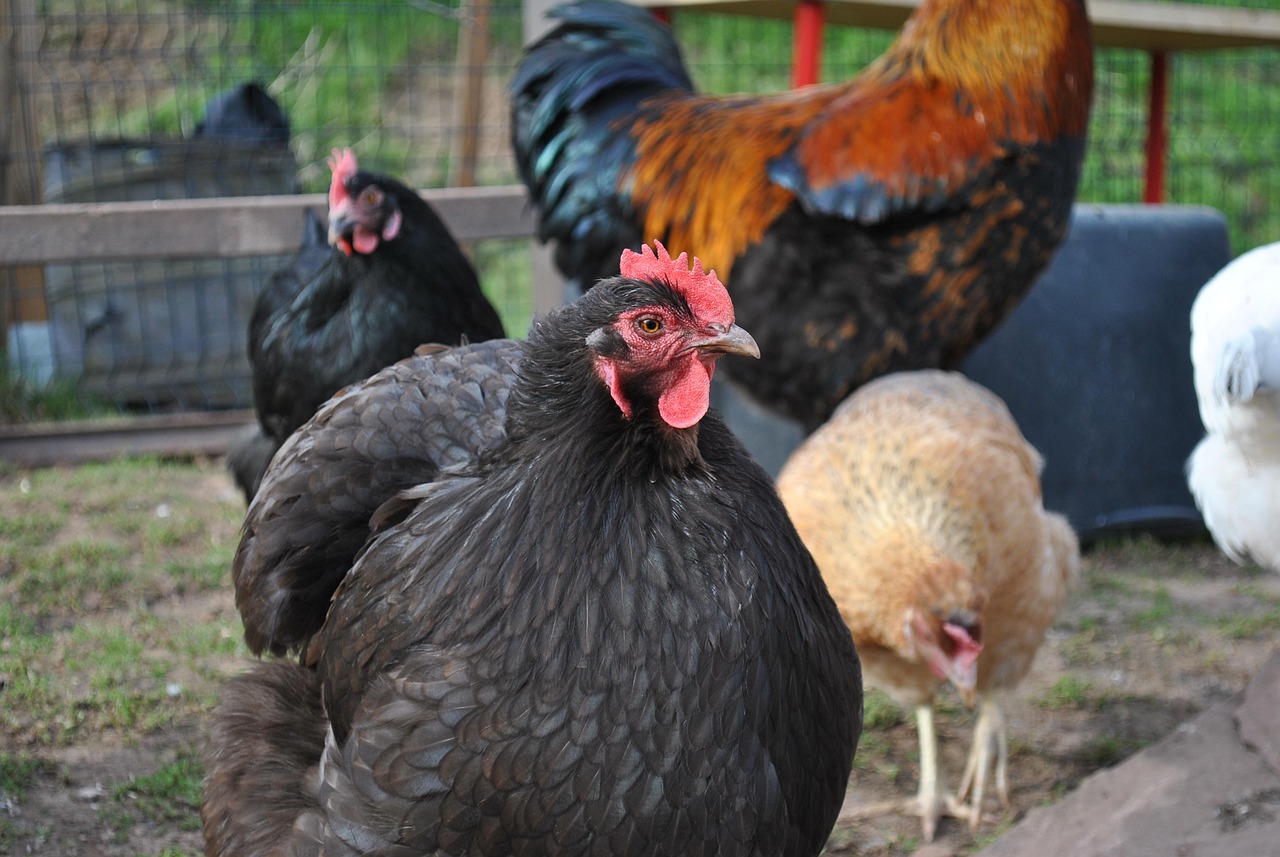
The routine
Every morning before school, I checked on the hens and pigeons. Once the hens started laying, I collected the eggs and made another round later in the day. Every night, we double-checked the coop and run. We made sure everything was locked up tight, just in case a fox tried to sneak in.
Keeping the coop and run clean was important. I did it daily and it is easier that way. I cleaned the coop at the same time as the pigeon loft. To be honest, I just enjoyed time with the birds and making sure they were healthy and happy. With pets come responsibility, that lesson was drilled into me, but it was never a hardship.
During the school holidays, the hens were out more often. They especially enjoyed the early morning hours and late afternoon. When it was too warm, they would seek out shaded areas. We had an abundance of shade in our garden, lots of shrubs and flowering plants down each side, but my father’s vegetable garden was a favourite, or I would find hens by the large rhubarb leaves.
Lifespan
Orpingtons have a decent lifespan when looked after. They will often live ten years or more. We had our hens for some years but as we didn’t know their ages when we inherited them, I am not sure how old they were at the end. It is worth noting that as chickens age, they don’t lay the same number of eggs when older. That wasn’t really an issue for us, and we just let the birds live out their lives.
Eggs
Our hens laid more than enough eggs. Far more than we needed. We collected about a dozen eggs each week. My mother loved to bake, but since she was often unwell during my childhood, she baked in batches. That meant we sometimes had extra eggs, which we happily shared with others.
Orpingtons are excellent brooders, laying eggs every few days. Their mild temperament makes egg collection easy. You can simply lift them off the nest without trouble. At first, I moved cautiously, half-expecting a sharp peck, but they didn’t mind. I took the egg, and that was that.
When you get your hens, it may take a while before they start laying. There are indicators though. Look out for the deepening colour of the combs and wattles. They will seem to be crouching more too.
Considerations
If you’re thinking about keeping chickens, a small flock of 3-5 is a great start. But before you start, consider a few key things. How many eggs do you need each week, and how much space do you have? And whatever you do, don’t get just one. Chickens are social birds and thrive in a group.
You should also consider your experience with chickens.
The more time you spend with your birds, the more you will get to know their funny little ways. You’ll also develop an instinct for when they seem unwell or out of sorts. I would say these are family-friendly birds. They are fine with children if treated well, and as long as their needs are met, they will keep producing eggs for you.
My brother went on to have more Orpingtons when he settled down and had his own house. He had a large coop and run in his garden and on average, about six chickens at a time. I believe he purchased fertile eggs to hatch which must have been amazing and it certainly became his passion for quite a while. His chickens were so tame, and yes, they took no nonsense from the neighbourhood cats either.
I have to admit, recalling all this has brought back some very happy childhood memories. I am tempted to keep chickens again!
Want to read another chicken story? Read “In Awe From Tail To Feather: A Great Time!” from a Swedish reader of Chicken Clucks.
